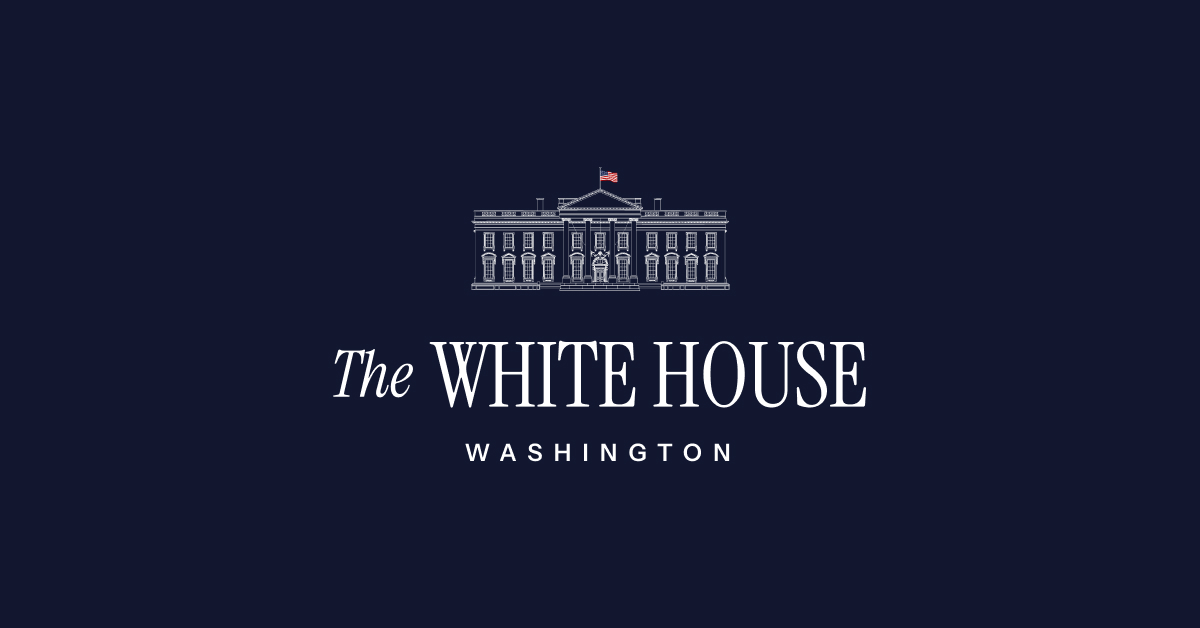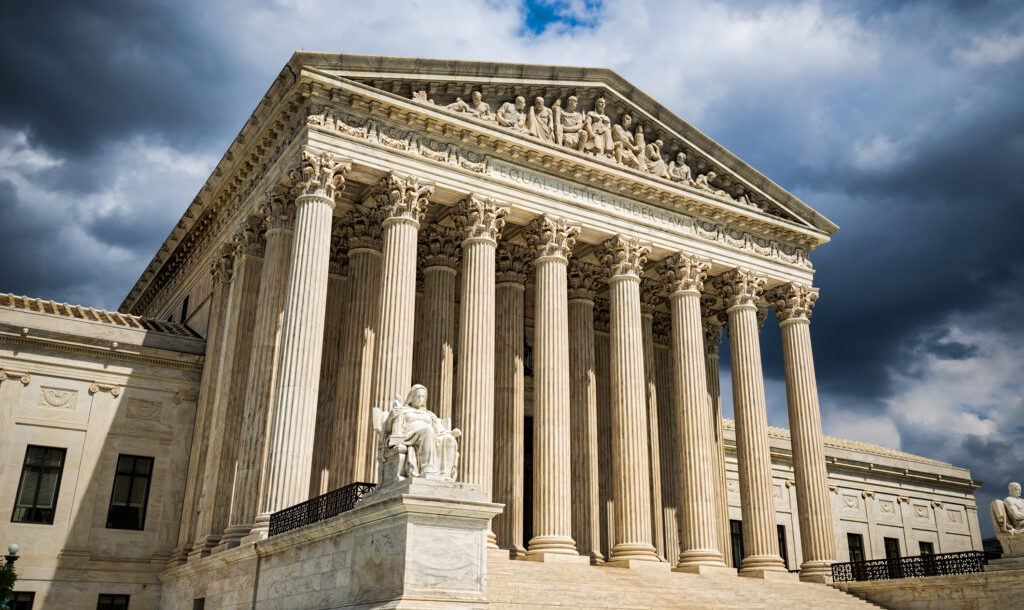Forty-six million Americans rely on the program Trump's government had said it would cease funding as of tomorrow though there are funds available to pay for it.
You are using an out of date browser. It may not display this or other websites correctly.
You should upgrade or use an alternative browser.
You should upgrade or use an alternative browser.
Court Orders Trump Administration to Pay Food Benefits
- Thread starter martin
- Start date
Do you really, really believe that 46 million Americans are really, really are honestly due food stamps, Marty?Forty-six million Americans rely on the program Trump's government had said it would cease funding as of tomorrow though there are funds available to pay for it.
Poor Marty.
Maybe the Trump administration can put it on the judge's credit card.“As soon as possible.”
Since there is no funding due to the Schumer Shutdown…as soon as possible means til the Democrats vote with the Republicans to open the government.
T. A. Gardner
Serial Thread Killer
More judicial overreach. I guess Judge McConnell (an Obama appointee) has been asleep or is stoned out his gourd because the Supreme Court has already ruled such lowly judges like him cannot issue national edicts nor can they set federal policy. They can only rule on matters before them within their set jurisdiction. Another Obama appointee (and ultra-Trump hater) Judge Talwani in Massachusetts has ruled likewise.Forty-six million Americans rely on the program Trump's government had said it would cease funding as of tomorrow though there are funds available to pay for it.
I doubt either ruling will stand as in both cases, the judges are setting federal policy usurping executive branch power. It's not for them to decide when emergency funding is to be expended and on what. That is clearly a decision for the executive--President--to make.
This is a clear case of low-level federal judges going rogue, setting federal policy, and doing so with ZERO legal grounds to do so.
Here's Talwani's order. She is setting policy for the US on food stamp money, a clear violation of her powers as a district court judge and so ruled by the Supreme court.
I seriously doubt hers or McConnell's rulings will stand on appeal.
T. A. Gardner
Serial Thread Killer
Wrong. The Democrats were looking forward to that so they could have "leverage." They even said so repeatedly now.And Trump was so looking forward to starving people, especially the children, so he could blame it on Democrats.
Democrats weren't the ones threatening to cut benefits. In court they were the ones arguing against it. Read before you jump.Wrong. The Democrats were looking forward to that so they could have "leverage." They even said so repeatedly now.
Is President Trump pushing old folks in wheelchairs off the cliff, Marty?And Trump was so looking forward to starving people, especially the children, so he could blame it on Democrats.
Too funny.
If anyone starves, it’s the far left Democrat’s fault for shutting down the government and refusing to open the government, Marty.
You're non-legal legal opinion.More judicial overreach. I guess Judge McConnell (an Obama appointee) has been asleep or is stoned out his gourd because the Supreme Court has already ruled such lowly judges like him cannot issue national edicts nor can they set federal policy. They can only rule on matters before them within their set jurisdiction. Another Obama appointee (and ultra-Trump hater) Judge Talwani in Massachusetts has ruled likewise.
I doubt either ruling will stand as in both cases, the judges are setting federal policy usurping executive branch power. It's not for them to decide when emergency funding is to be expended and on what. That is clearly a decision for the executive--President--to make.
This is a clear case of low-level federal judges going rogue, setting federal policy, and doing so with ZERO legal grounds to do so.
Here's Talwani's order. She is setting policy for the US on food stamp money, a clear violation of her powers as a district court judge and so ruled by the Supreme court.
I seriously doubt hers or McConnell's rulings will stand on appeal.
In this case the federal policy already was set and the court's order is merely one of enforcing an existing federal law according to its terms.
T. A. Gardner
Serial Thread Killer
The Democrats were willing to cut benefits before they were against that.Democrats weren't the ones threatening to cut benefits. In court they were the ones arguing against it. Read before you jump.
T. A. Gardner
Serial Thread Killer
No, it's not. It directs the executive branch to distribute funds authorized by Congress in a specific manner on a specific time scale. That is the court usurping executive power. It is also a district court making a nationwide injunction which the Supreme Court has said they cannot do.You're non-legal legal opinion.
In this case the federal policy already was set and the court's order is merely one of enforcing an existing federal law according to its terms.

U.S. Supreme Court Limits Nationwide Injunction Authority
On June 27, 2025, the U.S. Supreme Court significantly limited federal courts' authority to issue nationwide injunctions in Trump v. Casa (No. 24A884). This landmark decision fundamentally reshapes federal litigation practices, particularly in cases challenging federal executive orders and...

“A BIG WIN”: Supreme Court Ends Excessive Nationwide Injunctions
“Today’s decision restores the proper separation of powers between the branches of government. Ending nationwide injunctions is a tremendous victory for

U.S. Supreme Court prohibits nationwide injunctions, but the decision’s practical impact is uncertain
By: William H. Buechner, Jr. On Friday, the Supreme Court ruled in Trump v. CASA, Inc., — S. Ct. —, 2025 WL 1773631 (June 27, 2025) that district courts likely do not have the equitable authority to…
So, you have two rogue judges ignoring the law and deciding executive policy and practice.
Executive power doesn't include the power to ignore requirements legally imposed by Congress. The Administration's main argument in the case was that it is unable under present conditions to comply with the law, not that the law is inapplicable.No, it's not. It directs the executive branch to distribute funds authorized by Congress in a specific manner on a specific time scale. That is the court usurping executive power. It is also a district court making a nationwide injunction which the Supreme Court has said they cannot do.
Teflon Don
I'm back baby
On what authority does a judge have to do that?Forty-six million Americans rely on the program Trump's government had said it would cease funding as of tomorrow though there are funds available to pay for it.
Did he also block Trumps peace agreement too?
You guys say you hate authoritarians but love these rogue authoritarian judges
The authority of a law enacted by Congress. Read the news instead of asking a dumb question.On what authority does a judge have to do that?
Did he also block Trumps peace agreement too?
You guys say you hate authoritarians but love these rogue authoritarian judges
You didn’t bitch when Trump ran off with funds allocated to the military to build his wall. Why is that?No, it's not. It directs the executive branch to distribute funds authorized by Congress in a specific manner on a specific time scale. That is the court usurping executive power. It is also a district court making a nationwide injunction which the Supreme Court has said they cannot do.

U.S. Supreme Court Limits Nationwide Injunction Authority
On June 27, 2025, the U.S. Supreme Court significantly limited federal courts' authority to issue nationwide injunctions in Trump v. Casa (No. 24A884). This landmark decision fundamentally reshapes federal litigation practices, particularly in cases challenging federal executive orders and...natlawreview.com

“A BIG WIN”: Supreme Court Ends Excessive Nationwide Injunctions
“Today’s decision restores the proper separation of powers between the branches of government. Ending nationwide injunctions is a tremendous victory forwww.whitehouse.gov

U.S. Supreme Court prohibits nationwide injunctions, but the decision’s practical impact is uncertain
By: William H. Buechner, Jr. On Friday, the Supreme Court ruled in Trump v. CASA, Inc., — S. Ct. —, 2025 WL 1773631 (June 27, 2025) that district courts likely do not have the equitable authority to…www.fmglaw.com
So, you have two rogue judges ignoring the law and deciding executive policy and practice.
False equivalency. FailureOn what authority does a judge have to do that?
Did he also block Trumps peace agreement too?
You guys say you hate authoritarians but love these rogue authoritarian judges
Diogenes
Nemo me impune lacessit
You're non-legal legal opinion. In this case the federal policy already was set and the court's order is merely one of enforcing an existing federal law according to its terms.
Is that so?
- Judge Indira Talwani of the U.S. District Court for the District of Massachusetts ruled that the Trump administration must use contingency funds to provide at least partial SNAP benefits for November. This aligns with earlier reports, where she ordered compliance by Monday, November 3, and held a temporary restraining order (TRO) motion under advisement pending that compliance. The article notes her decision came after a hearing where she emphasized the emergency nature of the funding gap affecting 42 million low-income Americans.
- Judge John J. McConnell Jr. of the U.S. District Court for the District of Rhode Island issued a temporary restraining order (TRO) earlier today, requiring the Trump administration to fully fund SNAP benefits using contingency reserves. This ruling came in response to a lawsuit filed by Columbus, Ohio, and other plaintiffs, with McConnell stating that the potential loss of food assistance would cause "irreparable harm" to beneficiaries. The TRO is set to remain in effect as the case progresses, with the government directed to act immediately.
This grants Congress the sole power to allocate funds, and courts generally defer to congressional intent as expressed in statutes.
The USDA argued that the contingency fund is reserved for "unforeseen events" like hurricanes or recessions, not funding gaps caused by congressional inaction, a position echoed in its 2025 Lapse of Funding Plan.
Talwani’s ruling counters this by interpreting the fund’s purpose more broadly, likely citing the immediate need to prevent hunger among 42 million beneficiaries as within the statute’s intent.
This interpretation hinges on judicial review—her role to ensure executive compliance with law—but it skirts the edge of appropriating funds, which some argue encroaches on congressional authority.
Precedents like Train v. City of New York (1975) affirm that courts can compel agencies to spend appropriated funds when Congress has mandated it, but redirecting funds from one purpose (e.g., national emergencies) to another (e.g., SNAP) raises questions.
The Supreme Court’s reversal of Talwani’s April 2025 TRO blocking deportations suggests scrutiny of her expansive rulings, indicating her authority is not absolute.
Legally, she can order the USDA to act within existing appropriations if she finds the agency’s refusal arbitrary or contrary to law under the Administrative Procedure Act (5 U.S.C. § 706), but redefining the fund’s purpose could be challenged as overreach, potentially leading to an appeal or Supreme Court review.
Judge McConnell, a federal district judge for the District of Rhode Island, issued a TRO mandating immediate full SNAP funding.
However, the core weakness lies in the Appropriations Clause (Article I, Section 9, Clause 7), which reserves Congress’s exclusive power to allocate funds. The USDA’s position, as outlined in its 2025 Lapse of Funding Plan, is that the $5.3 billion contingency fund under the Food and Nutrition Act of 2008 is for "unforeseen events" like natural disasters or recessions, not funding gaps from congressional inaction.
McConnell’s order to fully fund SNAP—estimated at $8.5–9 billion monthly—exceeds the contingency reserve, potentially requiring the redirection of funds from other purposes, such as national emergency reserves. This stretches beyond mere enforcement of existing appropriations into reallocation, a domain constitutionally reserved for Congress.
Again , precedents like Train v. City of New York (1975) allow courts to compel agencies to spend appropriated funds, but redirecting or expanding their use risks overreach.
The Supreme Court’s reversal of Talwani’s April 2025 deportation TRO suggests a pattern of scrutiny toward district judges who appear to usurp legislative or executive roles.
McConnell’s TRO could face similar challenges if appealed, especially if the government argues that full funding exceeds statutory intent or available reserves, potentially violating separation of powers.
Crepitus
Verified User
Is he? No.Is President Trump pushing old folks in wheelchairs off the cliff, Marty?
Would he, given the opportunity? You damn betcha.

